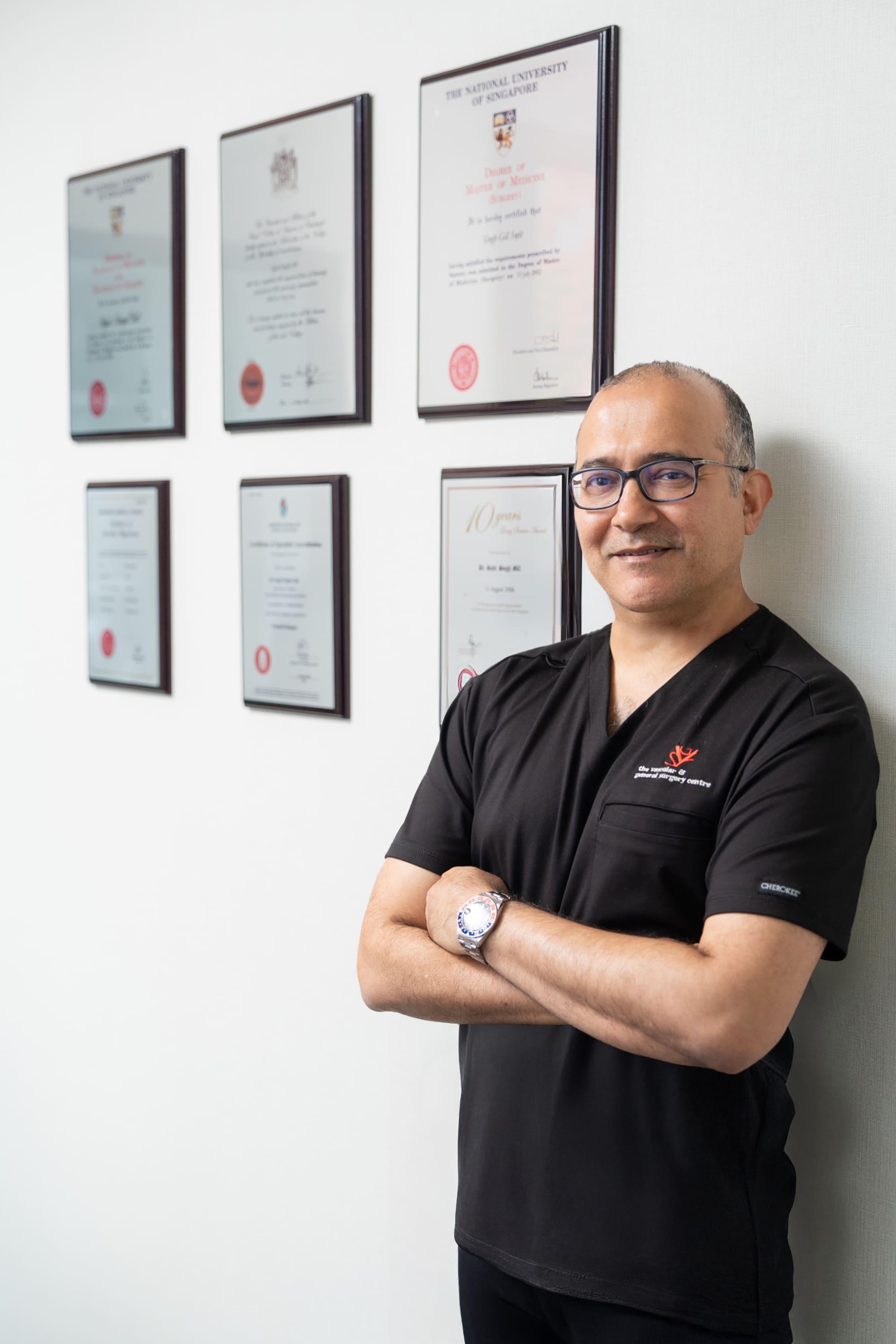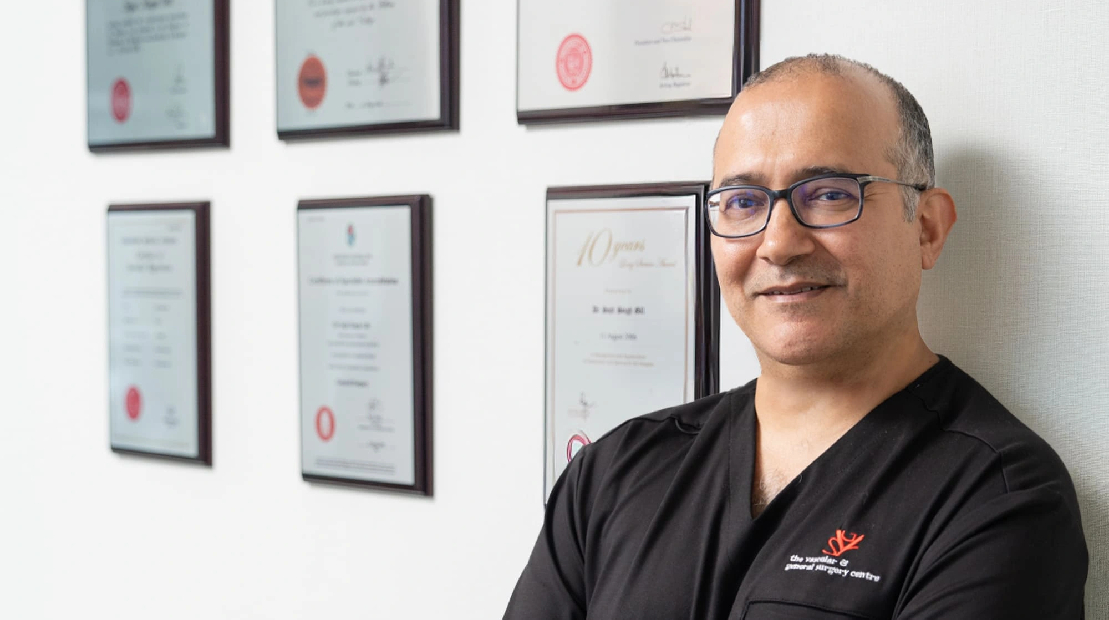Varicose veins are a common condition affecting many adults in Singapore. While some varicose veins are merely cosmetic, others can lead to serious complications requiring surgical intervention. Recognising the signs and understanding diagnostic tests is essential. In this article, vascular surgeon Dr Sujit Singh Gill provides clarity on when surgery might be necessary.
Signs You May Need Varicose Vein Surgery
Not all varicose veins require immediate intervention. In some cases, lifestyle adjustments, compression stockings, and other non-surgical methods may be sufficient for management. However, surgical treatment should be considered if you experience:
1. Pain and Discomfort
Persistent leg pain, throbbing and heaviness, especially after standing or sitting for prolonged periods, often indicate advanced varicose veins.
2. Skin Changes
Discolouration, itching, scaling and skin hardening around the affected veins could indicate chronic venous insufficiency, which may necessitate surgical intervention.
3. Swelling and Inflammation
Chronic swelling, especially around the ankles and lower legs, suggests impaired venous drainage, increasing the risk of ulcers and infections.
4. Bleeding Veins
Superficial veins that spontaneously bleed or bruise easily highlight a significant underlying venous issue.
5. Ulcer Formation
Venous ulcers, particularly near the ankles, are severe signs of venous disease and often warrant surgical intervention.
Diagnostic Tests for Varicose Veins
Diagnosing varicose veins accurately is crucial for determining the most effective treatment. Common diagnostic procedures include:
1. Clinical Examination
A thorough clinical examination by a specialist like Dr Gill is the crucial first step. This exam helps identify visible vein patterns, leg swelling, skin changes, and potential ulcers.
2. Duplex Ultrasound
Duplex ultrasound is the gold standard for diagnosing varicose veins. It combines traditional ultrasound and Doppler imaging to evaluate blood flow, identify valve dysfunction, and detect deep vein problems.
3. Venography
This involves injecting a contrast dye into the veins and taking X-ray images. Though less frequently used now due to advanced ultrasound, venography can be valuable for complex venous conditions. It helps doctors assess the severity of varicose veins, identify underlying issues like blood clots or valve problems, and evaluate blood flow before certain surgeries, such as varicose vein stripping and ligation.
Surgery for Varicose Veins
Surgical interventions for varicose veins are recommended when conservative treatments, like compression stockings and lifestyle changes, do not relieve symptoms or when severe complications occur.
Although some patients choose treatment for cosmetic reasons, surgery is more often indicated for symptomatic varicosities. Traditional vein “stripping” is now rarely performed, but it can still be appropriate in cases of very large, superficial or highly tortuous veins.
Today, a range of modern procedures is available:
- Endovenous Laser Ablation (EVLA): A minimally invasive procedure where a laser fibre is inserted into the faulty vein. Targeted laser heat collapses and seals the vein permanently.
- Radiofrequency Ablation (RFA): This technique uses radio-wave energy delivered via a catheter to heat and seal the diseased vein. In many cases, RFA causes less bruising and post-procedure pain compared to EVLA.
- VenaSeal™ Closure System: A non-thermal method where a medical "super-glue" (cyanoacrylate adhesive) is precisely delivered into the vein via a micro-catheter, permanently shutting it.
- Ambulatory Phlebectomy: This micro-surgical procedure involves making tiny skin nicks to directly remove bulging, superficial varicose veins. It is often used for visible veins that remain after other primary treatments or for isolated varicosities.
- Foam Sclerotherapy: A medical foam is injected into the vein, causing it to scar and close. This method is widely regarded as the gold standard for residual spider and reticular veins.
Why Consult Dr Sujit Singh Gill
Dr Sujit Singh Gill offers over two decades of expertise in vascular care, combining advanced diagnostic equipment with a commitment to personalised patient attention. At The Vascular & General Surgery Centre, we offer precise duplex ultrasound diagnostics for accurate assessment and tailored treatment plans. Dr Gill is also highly experienced in treating varicose veins through both minimally invasive procedures and surgical solutions.




